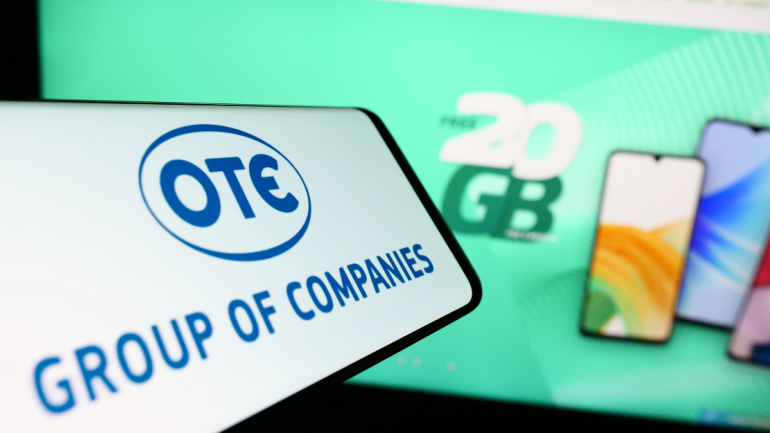In a strategic move to fortify the European Union’s standing in the global cloud computing sector, the European Commission has greenlit a substantial €1.2 billion state funding injection. The funding is earmarked for the Important Projects of Common European Interest (IPCEI) Next Generation Cloud Infrastructure and Services (IPCEI CIS), a collaborative initiative involving seven member countries: France, Germany, Hungary, Italy, the Netherlands, Poland, and Spain.
Greek telecommunications heavyweight OTE appears to be changing course, with whispers abuzz of pivotal shifts in its future business plans. The rumored centerpiece is the potential sale of its Romanian mobile operations, Telekom Romania Mobile, to Quantum Projects Group. This points towards a strategic refocusing on OTE’s extensive Greek operations, signaling a departure from the international stage.
Virgin Media O2’s decision to offload part of its Corneridge UK towers business to GLIL Infrastructure for £360 million marks a key shift in telecom infrastructure ownership. However, this move falls short of industry valuations, indicating price reductions in the investment market. Despite this, VMO2 retains operational and strategic control in this critical asset, striving to enhance 4G connectivity and intensify 5G rollout. This move aligns with the firm’s wider strategy, marking the start of a potentially transformative series of ambitious deals, lightening its footprint while driving growth.
Stepping into the spotlight, Ericsson unveils a software toolkit aimed at enhancing 5G connectivity services. Harnessing fresh algorithms to optimize performance, modifying RAN slicing for faster service, and promising superior low-latency capabilities, this toolkit is a game-changer. Despite the off-pulse struggle to unlock 5G potential, this toolkit is deemed as a catalyst for transitioning from ‘best-effort’ broadband to premium experience. Yet, the question remains: Will consumers bite? In this backdrop, Network X, a collaboration with the wireline and cloud industries, promises insightful stories and strategies, marking a critical date for telecom enthusiasts.
Telecom News | Week #44: T Challenge, End of Vodafone Spain, Nokia’s Technology Strategy 2030, Samsung and O2 testing vRAN.
Luxembourg’s Prime Minister and SK Telecom have inked an agreement, initiating a strategic collaboration to advance the quantum tech ecosystem. Connexion between this MoU and an earlier South Korean – Luxembourg agreement hints towards a momentous ‘quantum Internet of Things’. Meanwhile, telecom operators globally look to leverage quantum technology’s disruptive potential towards traditional data security protocols. SK Telecom, recognized for its pioneering quantum work, also boosts its pursuit in the AI realm, underlined by a significant investment in AI firms.
Amid growing inflation and swelling telecom budgets, the advent of 6G brings in costly implications tied to Radio Access Network (RAN) equipment. As these financial implications loom, The Next Generation Mobile Network (NGMN) Alliance proposes a different approach to 6G implementation that may spare existing 5G infrastructure from unnecessary renewal. They advocate an operator-driven decision process in refreshing the 5G RAN, maintaining that 6G upgrade should not compromise 5G user experience and should be software-upgradable on existing network elements. As 5G capex reaches its peak in markets like the U.S., NGMN’s stance could potentially redefine traditional strategies in introducing new generations of mobile technology.
In a first for the region, Ericsson and Australian operator TPG are creating a cloud-native AI-powered analytics tool, designed specifically to streamline 4G and 5G networks. With the power to predict and fix performance issues in real-time, this tool aims to enhance response times to network issues and reduce reliance on complex infrastructure analysis. Showcasing TPG as an early adopter, this technology also enhances network flexibility as usage increases, allowing for tracking of around five million subscribers.
Four powerhouse telecom companies have forged an alliance to harness the potential of Artificial Intelligence (AI), revolutionizing customer experiences and uncovering potential business opportunities. This alliance, brought to life in Seoul, South Korea, promises to co-develop a Telco AI Platform, pioneering new AI services, like digital assistants and super apps. The initiative has been seen as a forward-thinking response to the escalating global interest in AI within the telecommunications industry. Imminent discussions at the Total Telecom Congress will shed more light on this transformational feat.
Witness an intriguing experiment as three major European telecom leaders dive headfirst into field-testing the European Union’s digital ID scheme, dubbed ‘Potential’. An initiative that aims to streamline identity verification across 19 EU nations, it brings to our digital life convenience, efficiency, and the promise of enhanced security. However, it’s not without its challenges -potential data leaks, risks of stringent gatekeeping and concerns over invasive surveillance.













